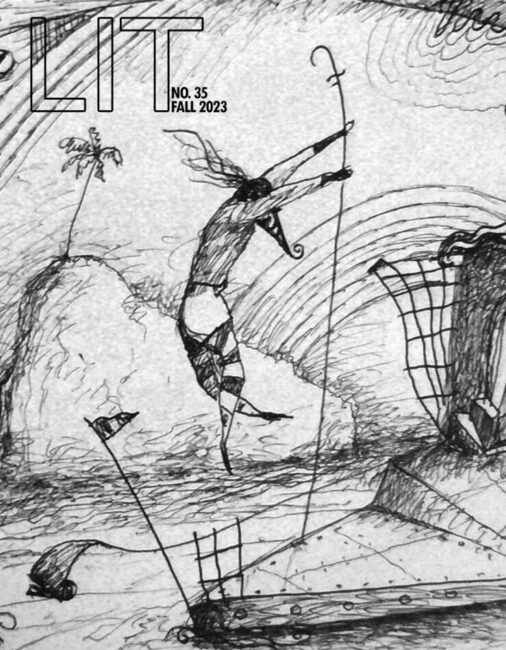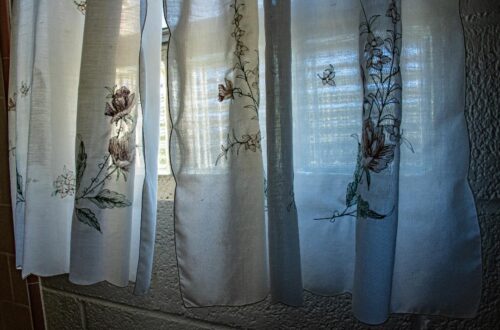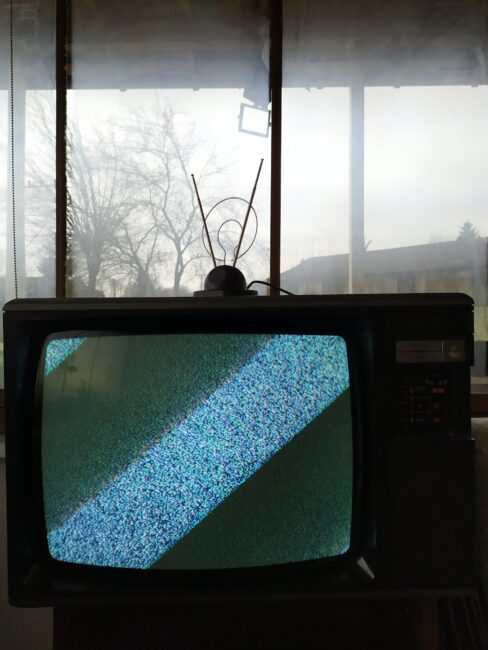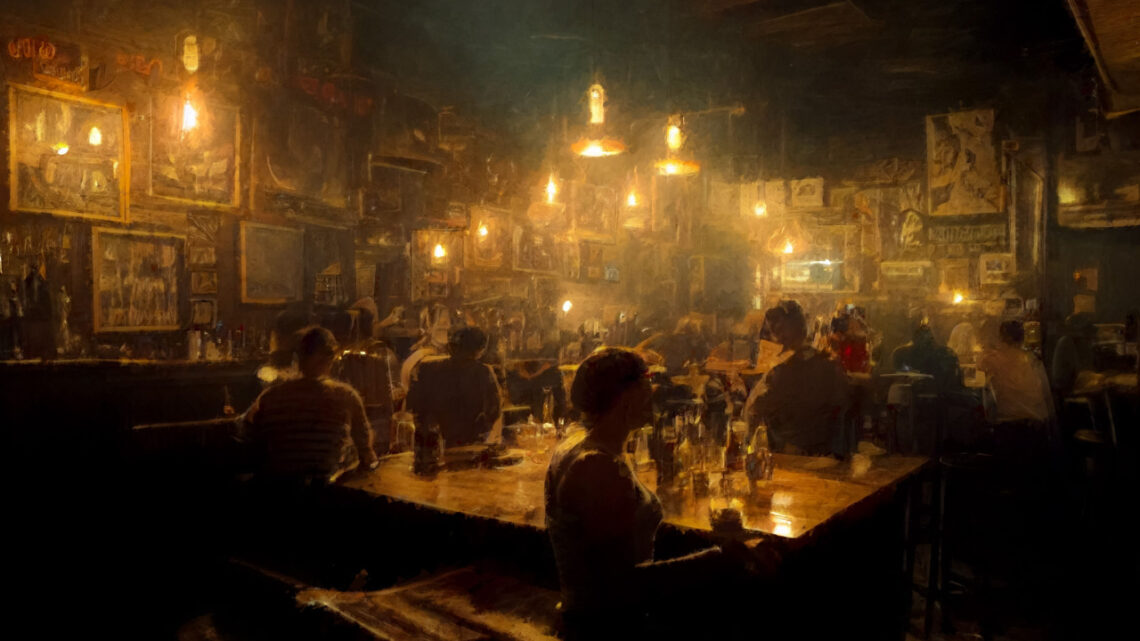
Memories of Drinks Past
by Michael Cannistraci
It was 1979 in Los Angeles. I was twenty-two, struggling as an actor, and struggling in general. My dreams of stardom had fizzled after graduation from college; aside from taking expensive acting classes, I wasn’t performing anywhere.
I got a job going door to door, recruiting men for a government vasectomy study. The work was easy, but the pay was lousy, and I had to buy my own gas. My girlfriend suggested I try bartending to make a living after she observed a bartender in a funky, dive surfer bar in Venice Beach counting a wad of cash on one of our dates. She said, “If he can make that much money in a dump like this, think of what you could make in a Beverly Hills cocktail lounge.”
My mother was horrified at the very thought of my serving liquor to the rich and famous.
“It’s bad enough that you want to be an actor, but a bartender! Serving poison to alcoholics,” she said.
I was silent on the phone; I knew I wouldn’t convince her of the practicality of my plan. Besides, she was in San Jose, and I was in Los Angeles, six hundred miles away. She wouldn’t have to witness my fall from grace.
I picked up a book on bartending and studied the recipes. Then I took a weekend crash course in the fundamentals of mixology. The class was held in an abandoned warehouse in Whittier, run by a wizened bartender in his eighties named Dwight. The warehouse was surrounded by empty lots, filled with tumbleweeds and abandoned autos rusting in the sun. Dwight had liquor bottles filled with food-colored water marked gin, vodka, rum, and every other liquor and liqueur known to humanity, and he worked us for ten hours, Saturday and Sunday, reviewing and making the recipes for a Gin Ricky, a Slow Comfortable Screw Up Against the Wall, the Harvey Wallbanger, and that all-time favorite, Skip and Go Naked. He also taught us the basics of a gin and tonic, scotch and water, and a martini. Dwight thought I had talent. He told me I was a star in the making, and I passed the bar course with an A.
I began looking for work scouring the want ads in the LA Weekly and the Los Angeles Times. Some of the bars were real dives in Hollywood, but I found one Italian restaurant in West Los Angeles called Bruno’s that looked promising. I knew I wasn’t ready to jump into some hot, trendy bar in Santa Monica where the room was packed five deep every night. I wanted to ease into bartending, to get a little seasoning and practice in a low key, quiet bar. I dropped off my resume and they called me in for an interview.
I lied on my resume, putting in make-believe bars in San Francisco, but Clyde, the manager, had just fired a bartender for drinking on the job and needed someone quick. He looked over my resume briefly and hired me on the spot. I was told to get black pants, a black vest and a white shirt, and trail Thursday night with Romero.
Bruno’s was a huge restaurant, taking up almost half a city block. The outside was white stucco with a red and green awning. A statue of a Roman centurion riding a lion and holding an Italian flag stood guard by the front entrance. The restaurant had a dining room, bar, and two separate catering halls, both with a dance floor. The restaurant was dimly lit, and the décor was faux 14th century medieval, with hanging brass chandeliers with electric candles; dusty statues of Vatican Swiss Guards holding lances in front of huge wooden doors emblazoned with shields and crossed swords added to the cheerfulness of the place.
The restaurant had been owned for three decades by a German family named the Schmidts. The father, Walter had opened the place with his wife Ingrid in the 1950’s, gradually expanding as the years passed. They served decent Italian food and had a following with folks in the movie business, meaning set designers, cameramen, those kind of people. This wasn’t where the movie stars hung out. Ingrid and Walter ran the restaurant with steely precision and an iron rule. Still, although the bar was slow, the restaurant was busy, so a lot of the staff stayed on for years, although they called them the Shits behind their backs.
Walter had a heart attack one night after yelling at a line cook, and the son, Dirk, took over the reins, but the real power behind the throne was Ingrid, who continued to direct operations through Dirk; Dirk chafed at taking suggestions from his mother, but he was a clueless restaurant owner, so he reluctantly appreciated being told how to run a business. He was Teutonically handsome, blond, and obliviously entitled. And then there was Clyde, the manager, who had a reptilian way of sneaking up on people to criticize the way someone folded a napkin or chopped onions. He was one of those people you had a hard time picturing having sex.
I arrived at the restaurant, walked out to the bar and stood there. The bar smelled of cigarette smoke, citrus fruit and Lysol. I peered out, and every seat was filled with used car salesmen from Culver City, meeting for an after-work drink. One guy in a red plaid leisure suit ordered a White Russian and, in a nanosecond, I realized my weekend bartending course was a waste of money. I froze in place and stared out, looking at the line of men waiting for me to get them drunk.
I fumbled with the bottles in the well rack and racked my brain for the recipe for a White Russian, or any cocktail for that matter; sweat began soaking the armpits of my white shirt.
I felt a hand gently but firmly touching my shoulder, and Romero looked benignly at me.
“You don’t know what de fuck you are doin, right?” he asked in his Argentinian accent.
I nodded slowly.
“Ok, watch and learn. I teach you.”
I watched as Romero took control of the bar and the half-lit used car salesman, moving with ease, mixing one cocktail while he took an order from another customer, joking and teasing with the men, until finally everyone had a drink in their hands, and everything was in order. I was stunned how he tamed the bar, always looking around to make eye contact with customers, making entrée suggestions that the men readily agreed to eat, a kind of liquor-fueled mind control. He never broke a sweat. He was awesome.
Romero was a strict taskmaster, despite his Latin lover looks and genial savoir faire. He would tap me sharply with the silver bartending spoon if I overpoured on vermouth or crème de cacao, making me redden and cringe in front of customers.
“You is ruining the cocktail. Pay attention. A four count for an ounce, a two count for a half. How many times I have to tell you?” He whispered sharply; his soft voice was crystal clear despite the music and constant buzz of conversation at the bar. He was obsessed over the placement of the sip straws, once yanking one I was chewing out of my mouth as I took a drink order for an older couple celebrating their fortieth wedding anniversary.
Being constantly observed and corrected was like having a fly buzzing around one’s plate, but I started becoming a good bartender. For Romero, making drinks was more than an artless chore to pay his bills. Mixology, the presentation of a well-made cocktail, the dance between a bartender and a customer, was a sacred vocation.
I gradually built up my speed and cocktail repertoire, learning to chat up and joke with my customers while I made five cocktails simultaneously. Still, Clyde made nasty comments about the stains on my vest, telling me I spilled more liquor on myself than in a glass. Romero warned of the wear and tear on my body, and at the end of each shift, my knees hurt from eight hours on my feet and my shoulders and biceps from lifting ice buckets and shaking martinis. My hands had cuts from slicing fruit, and my muscles were stiff at the end of every shift from lifting hundreds of liquor bottles. Notwithstanding my sore body and lousy tips, I loved the industry life and found a new family of friends in the hospitality business.
Despite being an actor, I was introverted around strangers and struggled to begin conversations. Romero told me to watch him and imitate his easy way of talking to people, commenting on someone’s tie, how nice their earrings looked, asking people from the Midwest where they got their accent. Working behind the bar, I gradually opened up and found I could engage in a conversation with a stranger over the most boring topics: the weather, where they were living, mowing their lawn. I had always been curious about people, and found I had a knack for drawing even the shyest, withdrawn customers out of their shells.
Romero told me to always remember that we were like actors on a stage, and the trick was never to allow customers to see our inner lives, our true feelings. “Leave your life at home,” he said. He told me the customers were at the bar to forget their troubles, their daily defeats and domestic sorrows. They didn’t want to share ours, they wanted us to help them forget theirs. I was taught to wear a mask, welcoming and lighthearted, and keep my personal problems to myself. “You want to talk to someone about your problems, get a psychiatrist or find a priest,” he said.
Romero and I were scheduled for New Year’s Eve, the biggest night of the year for the restaurant. “They want the A Team, my boy,” Romero crowed. I was grateful to work on a busy night as I was struggling to pay my rent with the tips I made. Earlier that day, I had an argument with my girlfriend about having to work on New Year’s Eve when she wanted me to come with her to a party. I was stressed, and my roommate, Marty, told me I needed to chill out and suggested I take a hit off a joint he was smoking. It was New Years’s. I figured, why not?
When I pulled in the parking lot, it hit me. I felt like I was floating in and out of my body; colors from the streetlights and neon signs began to pulse and merge as if dancing. I got the spins and had to grip the steering wheel to fight back nausea. In an instant I realized that this wasn’t some run of the mill marijuana. My idiot roommate had given me something laced with a psychedelic.
I walked into the chaos of the kitchen, chefs shouting at each other, bussers and waiters scrambling with serving trays filled with Italian food. Everyone’s head looked three times larger than their bodies, and I was having trouble coordinating my steps and hand movements as I weaved to the bar entrance. The bar was three deep with customers, and Romero was making cocktails like a madman. I took an order and started making a Stoli Martini, but my hands seemed to be in slow motion. I looked over at Romero. He was drinking champagne and brandy from a plastic cup, and he was glassy eyed, and his moustache looked crooked to me. He was giggling with one of the servers, a stunning Nigerian woman who had been hired early in the month to wait tables during the Christmas rush.
A Pentecostal church had rented half of the restaurant for a dinner and revival meeting, and they were shouting drink orders at me, mostly weird non-alcoholic drinks, like a virgin pina colada, drinks that required the same labor of mixology at half the price. All the customers looked like characters in a horror movie, their faces melting and shape shifting as I took their orders. I was making drinks and forgetting what I was making halfway through the drink, then starting all over again. Romero was standing in the service bar, kissing the Nigerian waitress on the neck; I called out to him for help, but he couldn’t hear me over the cacophony of noise and conversation. Some fat guy in a lime green suit looked at me. “Looks like you’ve been drinking from your own well, sonny boy,” he chortled.
My feet were cold, and I looked down. For some reason, I hadn’t noticed that the drain behind the bar had backed up and I was standing in six inches of water.
The Pentecostal church had finished their Chicken Parmigiana and gathered in the banquet hall and begun to sing gospel songs, “Give Me that Old Time Religion,” “The Old Rugged Cross”—all the songs I grew up with, a reminder of how far I had fallen from redemption by becoming a bartender. I heard those gospel songs, and I crinkled like squeezed tinfoil. I looked for Romero, but he was in a dark corner of the restaurant, pressed against a wall, making out with the Nigerian waitress. I was stoned and alone, wading in water, customers screaming for drinks. I don’t remember finishing the shift.
I woke up the next day in my bed, still wearing my bartender uniform, which smelled like beer and cigarettes. My eyes were crusty, and my hands smelled like dead frogs.
The phone jangled, shrieking into my skull. I reached for it and fell out of bed, knocking the phone to the floor.
“Hello, hello! Pick up the damn phone!” I could hear Clyde on the other end.
I writhed on the floor and grabbed the cord, pulling the phone to my ear, and garbled something.
Clyde told me to come in a half hour before my shift. He told me we needed to talk.
I knew what was coming. I expected it. I was going to get canned, and even though I wasn’t making much money behind the bar, it still depressed the hell out of me.
I got to the restaurant early and parked in the lot. A muttering man with crazy hair dragged a sleeping bag across the lot and walked down the street. I walked into the restaurant. The line cooks were making minestrone soup and avoided my gaze when I looked at them. They stood silently chopping garlic, parsley and tomatoes. I went to my locker and cleaned it out, putting my clothes and wine opener into a black garbage bag.
I knocked on the office door and Clyde barked for me to come in. The firing squad was lined up: Clyde, Mrs. Schmidt, and Dirk. They were all stone-faced like marble statues.
I stood there for a few seconds before I saw Romero, who looked awful. He had dark bags under his eyes, and his hair was standing up in a few places. I could see his roots were gray, and only then did I realize that he dyed his hair and his moustache. He stared at the floor; he looked beaten down.
The overhead fluorescent light stung my eyes and kept flickering, alternating the room from dim to bright. My eyes watered. Clyde and Mrs. Schmidt glared at me, while Dirk doodled on the back of an invoice. Romero’s skin was ash gray. He looked like a decrepit vampire.
“I guess you know why we’re meeting today,” Clyde said. “New Year’s Eve was a disaster, a real shitshow, and we want some answers.”
I gazed dully at him.
“I don’t know what to say,” I murmured.
“None of us do, for Christ’s sake,” Mrs. Schmidt hissed. Dirk looked up like he just noticed a meeting was happening.
“You know, there are consequences for this kind of behavior,” Dirk parroted. I stared at him and wondered what it would look like if a truck ran over him.
I’d had enough. What attracted me to the bar, the slow, low-key vibe, had turned me off. I wasn’t making enough tips to take their abuse.
“Look, let’s not drag this out. You want to fire me? Fine, I’m gone,” I said.
The three of them twitched a little and everyone stared at me in dumb wonder. Clyde finally barked in a hoarse voice, “You? We don’t want to fire you! You saved the damn day. You were the only sober one behind the bar. You kept the damn thing together. The restaurant would have been screwed if it wasn’t for you! No, we want to fire this comedian.” Clyde pointed to Romero. “We’ve had enough of his bullshit—not showing up for shifts, telling us how to run our business, messing with waitresses—he’s done!” Clyde sputtered.
Romero stared bleakly at me, his eyes red-rimmed, his face sagged. He shook his head slightly, as if to warn me off about something. I had never noticed this behavior from my idol, now fallen from his pedestal. The room smelled of sweat and Paco Rabanne cologne; he must have doused himself before coming here. I looked down at his scuffed black shoes and could see dried tomato juice on his laces.
Clyde looked at Romero with ice in his eyes.
“I’m tired of making excuses for you. You’re fired. Michael’s the head bartender now,” Clyde said.
I looked at the three of them and the words just came out of my mouth.
“I wouldn’t do that. Then you’re not going to have any bartenders. I’m quitting. I just got hired at Mr. Chow’s in Beverly Hills.”
The only sound was the buzzing of the fluorescent light.
“You! Why would Mr. Chow’s hire someone like you?” Dirk jabbered.
“Because I got the magic touch and Romero taught me well,” I said. I cut out before they could say another word.
I walked to my car, got in, and rested my head on the warm steering wheel. I had worked at Bruno’s for nine months, found a vocation, a new family that welcomed me into their fold, and in a heartbeat, I had thrown it away. The rent was due and I had practically nothing in savings. I didn’t know if that was the bravest thing I’d done, or the stupidest.
The passenger door swung open roughly and Romero sat down next to me.
“That was some show you put on there. You should think about acting for a living,” he said.
“Funny,” I replied.
We sat in silence, watching four Mexican construction workers drinking coffee and eating rolls next to a gravel truck on Pico Boulevard. Romero glinted at me, and his eyes smiled.
“You know? I remember Mr. Chow’s only hires Asian bartenders, no white boys.”
“They made an exception for me.”
Romero smiled and squeezed my hand.
“You is a good man, Charlie Brown,” he said.
He tapped my hand twice, got out of the car, and walked away.
I pulled my car out of the parking lot and got on the Santa Monica highway. I wanted to walk on the beach and feel the crystal cold of the Pacific on my feet. I thought I could talk to the seagulls, see if they had a plan for my next move.
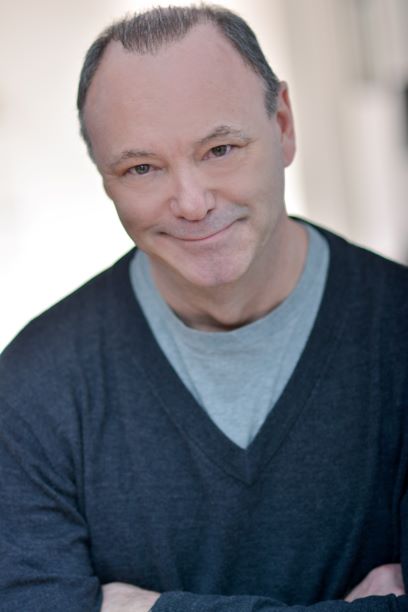
Michael Cannistraci, formerly a professional actor, currently works as a clinical social worker and psychotherapist. His essays have been published in Entropy Magazine, Briar Cliff Review Ravensperch, Literary Medical Messenger, The Evening Street Review, Bright Flash Literary Review, The Bangalore Review, The Dillydoun Review, Quibble, Levitate, Glacial Hills Review, Iris Literary Review and the The Bryant Literary Review. He was finalist in the Pen2Paper Literary Contest, New Millennium Writings and The Good Life Review Literary Contest. He lives with his wife and muse in New York City. (He/His/Him)
